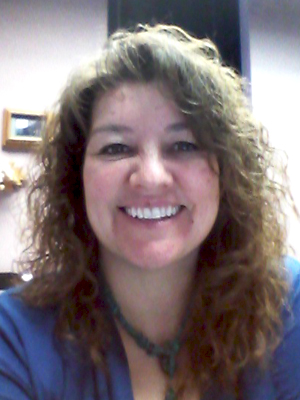 An experienced tribal and education
An experienced tribal and education
administrator from the Standing Rock Sioux Tribe has been named the
new executive director of the three-state Common Enterprise
Development Corporation based at Mandan, N.D.
(Hunkuotawin) succeeds long-time North Dakota public and private
economic development leader Bill Patrie, nationally known for helping
start several value-added agricultural businesses and services firms
in North Dakota that involved several Indian organizations.
Patrie will remain working at the
nonprofit consultancy during a transition period.
“I wouldn’t say I want to be a
bridge between Indians and non-Indians,” she said in an interview.
“I look at my new role as a resource link for people wanting to do
things.”
Kary previously worked with adult
education, student recruitment, public relations, and as vice
president for community development at Sitting Bull College at Fort
Yates. She was executive director of the Standing Rock Sioux Tribe
for two years. She also served as curriculum development director and
trainer at the Native American Training Institute, and research
director of United Tribes Technical College, both in Bismarck
She echoes views of Patrie, the
executive director since it’s founding in 2009. Both say persistent
poverty and health problems on reservations and in other communities
aren’t a “people failure,” but rather a “systems failure.”
Farm poverty has at least been partly
overcome by “system change,” Patrie said, whereby farm families
now keep more of the value of their production at home and working in
their state and local economies. Over the years, he helped create
more than 30 such cooperatives including the Fort Berthold
Agricultural Cooperative at New Town and the Twin Buttes Land Owners
Energy Cooperative at Twin Buttes.
Common Enterprise, or CEDC, is a
nonprofit consultancy providing technical assistance to start-up
enterprises mutually or cooperatively owned on and off reservations
in North Dakota, South Dakota and Minnesota. Tribally-owned
enterprises are by definition membership-owned and thus sibling
organizations with agricultural and food co-ops, mutual insurance and
finance companies, credit unions and other forms of community
enterprises owned and operated for the common good by members.
At CEDC, Patrie worked with local
groups involving North Dakota reservations, 11 North Dakota counties,
and others on developing a cooperative health care system; various
community development projects; with North Dakota, South Dakota,
Minnesota and Manitoba agricultural groups in developing value-added
processing enterprises; and on rural and reservation housing
projects.
Prior to starting CEDC, Patrie served
16 years as rural development director for the North Dakota
Association of Rural Electric Cooperatives. He later was director of
cooperative business strategies for the multi-state Northcountry
Cooperative Development Fund and Foundation. CEDC is a spin-off
development consultancy still linked with Northcountry.
Collaborating with groups sharing
interests is a strength Kary brings to CEDC, said Theresa Grant,
principal partner in Okiciya Consulting Inc. and with KAT
Communications, based at Bismarck.
“She (Kary) is smart as a whip,”
Grant said. “She can communicate, and she brings people together.”
For background, Kary has bachelor and
master’s degrees from University of Mary at Bismarck and a Ph.D. in
Communications and Public Discourse from the University of North
Dakota, Grand Forks. She was awarded a Bush Foundation Fellowship in
2013 to research conditions and needs of the American Indian
population in the Bismarck-Mandan area.
That led to Kary starting a non-profit
organization, the Sacred Pipe Resource Center, to work on common
needs for the diverse cultural and tribal people living in and around
the two cities. It is still in a start-up phase. Kary will continue
to lead it from CEDC.
As further evidence of the interlinking
of relationships, Bismarck business and media consultant Grant serves
as chair of Sacred Pipe Resource Center. Okiciya, which means “to
help each other” in Lakota, and KAT Communications, with its
GoodHealthTV programming for both native health and public health
networks, crisscross many common health and healthcare access issues.
While recent CEDC projects have been in
advancing studies and proposals for agricultural related enterprises,
including the prospect for nitrogen fertilizer production in North
Dakota, health and well-being issues remain integral to the
nonprofit’s mission.
Among the most closely watched projects
nationally was CEDC’s work with local groups to form the Wilson
Health Care Cooperative, named to honor Dr. Herbert Wilson who
provided medical services on the Fort Berthold Reservation for most
of the past half century.
An aim of this cooperative is to get
different government agencies, different insurance plans, and
different health facilities to integrate delivery and access to
health care. “We still have people driving too far to get
pharmaceuticals and services,” Kary said.
This collaborative, cooperative
approach is a “systems change” that could benefit everyone living
in rural North Dakota, she said. That is a lesson she learned as a
young child on a Standing Rock ranch.
“There was a dry year, much like this
year. An electrical storm started a grass fire and it was coming
right at our home. We didn’t have a local fire department at that
time,” she recalls.
But then, another cloud formed over the
gravel roads leading to the ranch. It was dust. People from miles
around came in cars, trucks and on tractors to fight the fire. Her
family home was saved.
“That left an impact on me on what
people can do for each other,” she said.







